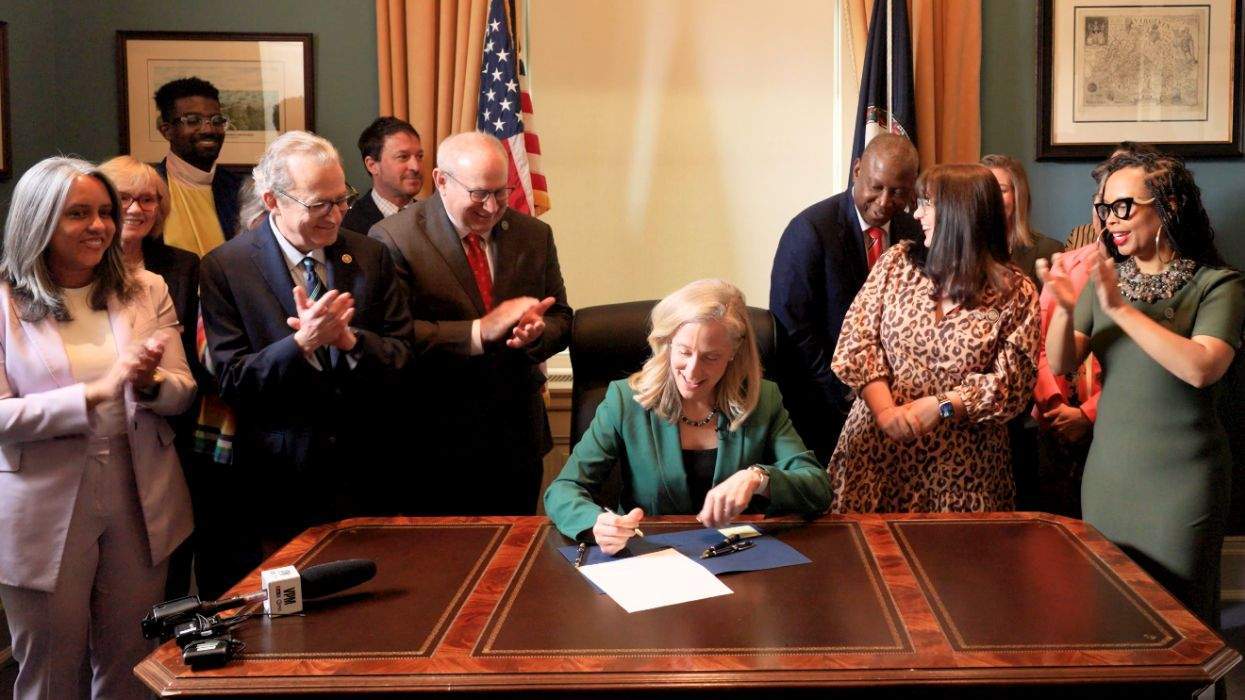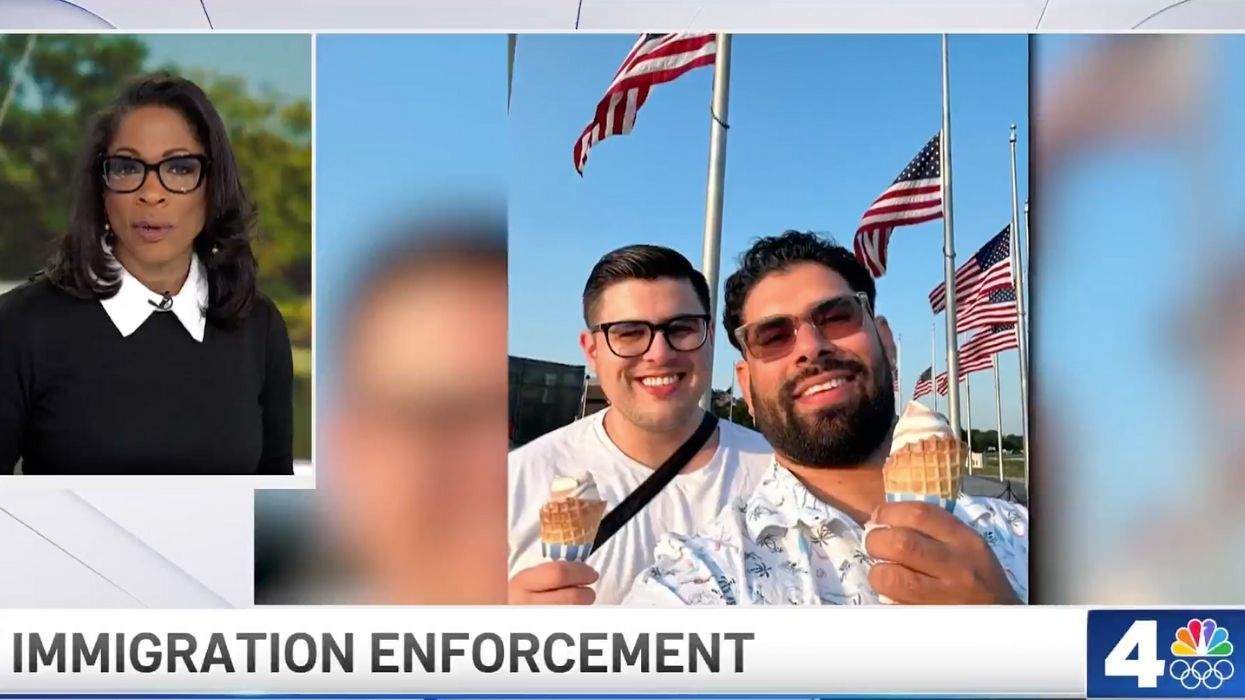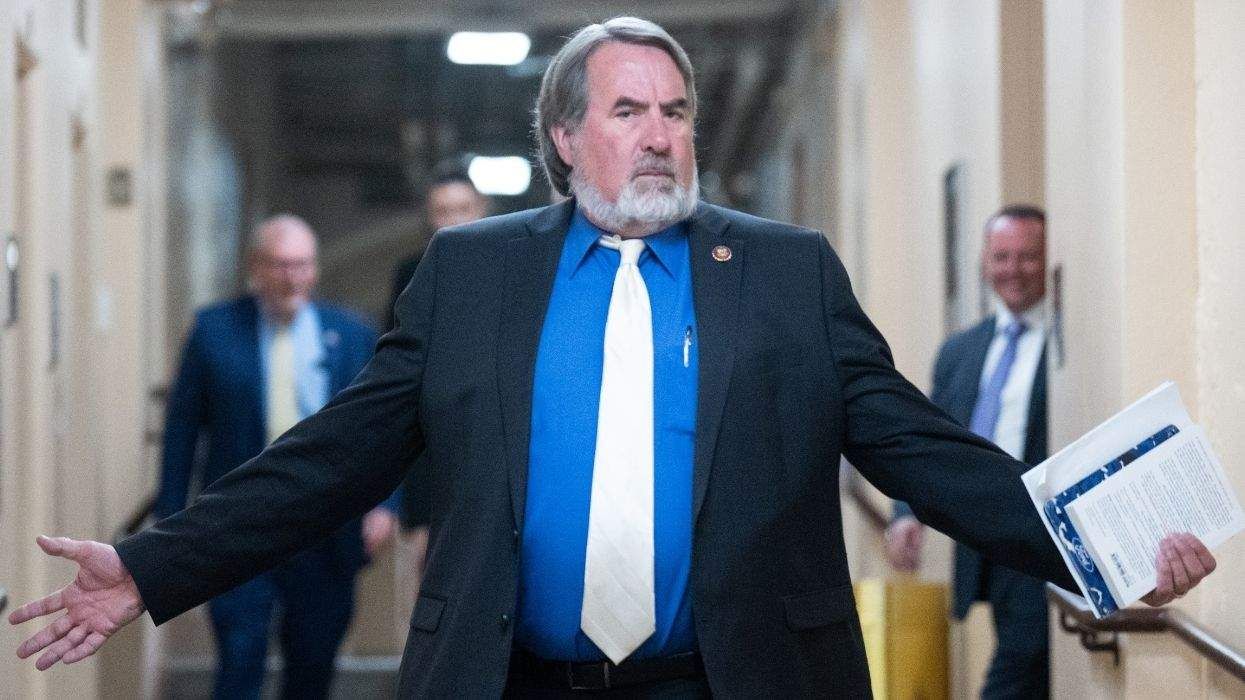During the Proposition 8 arguments Tuesday, the question of whether the proponents had the authority to represent the state and the people of California became a critical point of consideration for the justices. What follows is a brief primer on why it's at issue and what it could mean.
Is there a precendent on standing similar to this case?
The last time the court confronted the question of whether supporters of a ballot measure have standing to appeal a decision that government officials declined to address was in a 1997 case called Arizonans for Official English v. Arizona. In that case, the court said that in order to demonstrate standing, the litigant must "express a direct stake in the outcome." In other words, the litigants must show some injury or harm.
Do the proponents have standing?
This is for the Supreme Court to decide, and the justices telegraphed serious doubts during oral arguments Tuesday.
But Jenny Pizer, senior counsel at Lambda Legal, says there's a possible distinction between Arizona law and California law here because "there's nothing we can see in Arizona law that says the proponents of a measure are permitted to step into the shoes of the government" for the purposes of defending an initiative. In contrast, California had a process whereby the question could be put to the California Supreme Court for an advisory opinion. That's exactly what the Ninth Circuit Court of Appeals asked the California Supreme Court to do, and the court ultimately ruled that "it was more consistent with California law to authorize the proponents to defend the measure rather than determine that the measure simply goes undefended," notes Pizer.
A prominent conservative legal analyst, Edward Whelan III, generally agreed with this analysis in a recent National Review op-ed, writing, "The California supreme court, the authoritative interpreter of state law, has ruled that Prop. 8 proponents represent the state's interest in defending Prop. 8."
If the court finds the proponents do indeed have standing, that's likely the grounds on which they will do so. Read about the possible outcomes of such a decision here.
What happens if the court finds the proponents don't have standing?
This is the subject of some debate and, to be perfectly honest, it's hard to know how much credence to give the worst-case scenario outcome.
The best-case scenario: The Ninth Circuit's ruling would be vacated, district court judge Vaughn Walker's ruling would stand, and same-sex marriages would resume statewide in California.
Worst-case scenario: The Ninth Circuit's ruling would be vacated and Walker's ruling would stand, but it would only apply to the two same-sex couples named as plaintiffs in the case, Kristin Perry and Sandy Stier and Paul Katami and Jeff Zarrillo. That scenario, which every LGBT advocate I've spoken to has discounted, was laid out in some detail in a San Francisco Chronicle article. The piece notes that the suit was "not a class action on behalf of all same-sex couples in California," which suggests that it could "fall into the same category as another federal judge's 1992 order allowing an openly gay sailor to remain in the Navy -- an order the judge framed as a nationwide injunction before the Ninth Circuit scaled it back to apply only to the sailor."
Several lines in a post from SCOTUSblog, an influential legal observer, Tuesday seemed to generally agree with this positioning. If Judge Walker's ruling stood, it asserted, "That district court ruling would apply to the parties in the case. There would be additional litigation about whether and how Proposition 8 would be applied elsewhere."
But that simply doesn't make sense to Pizer, who believes Walker's injunction to stop enforcing Proposition 8 and start issuing marriage licenses would apply across California.
"Judge Walker issued an order directed to the state officials who are charged to run certain government functions, including the issuance of marriage licenses," she says, referring to the state attorney general, the governor and the clerks. "The order was based on consideration of the constitutionality of Proposition 8 as a whole, not based on facts specific to these individuals."
Pizer believes the governor and attorney general would consider themselves "bound by Judge Walker's order" and would therefore order the clerks to issue licenses equally.
Whelan also seems to agree on this count. "California Governor Jerry Brown would surely seize the opportunity to instruct state officials not to enforce Prop. 8," he writes.
One caveat, Pizer adds: A clerk who disagrees might sue for a court order declaring that Walker didn't have authority statewide, and the issue might travel up to the Ninth Circuit once again from there.















